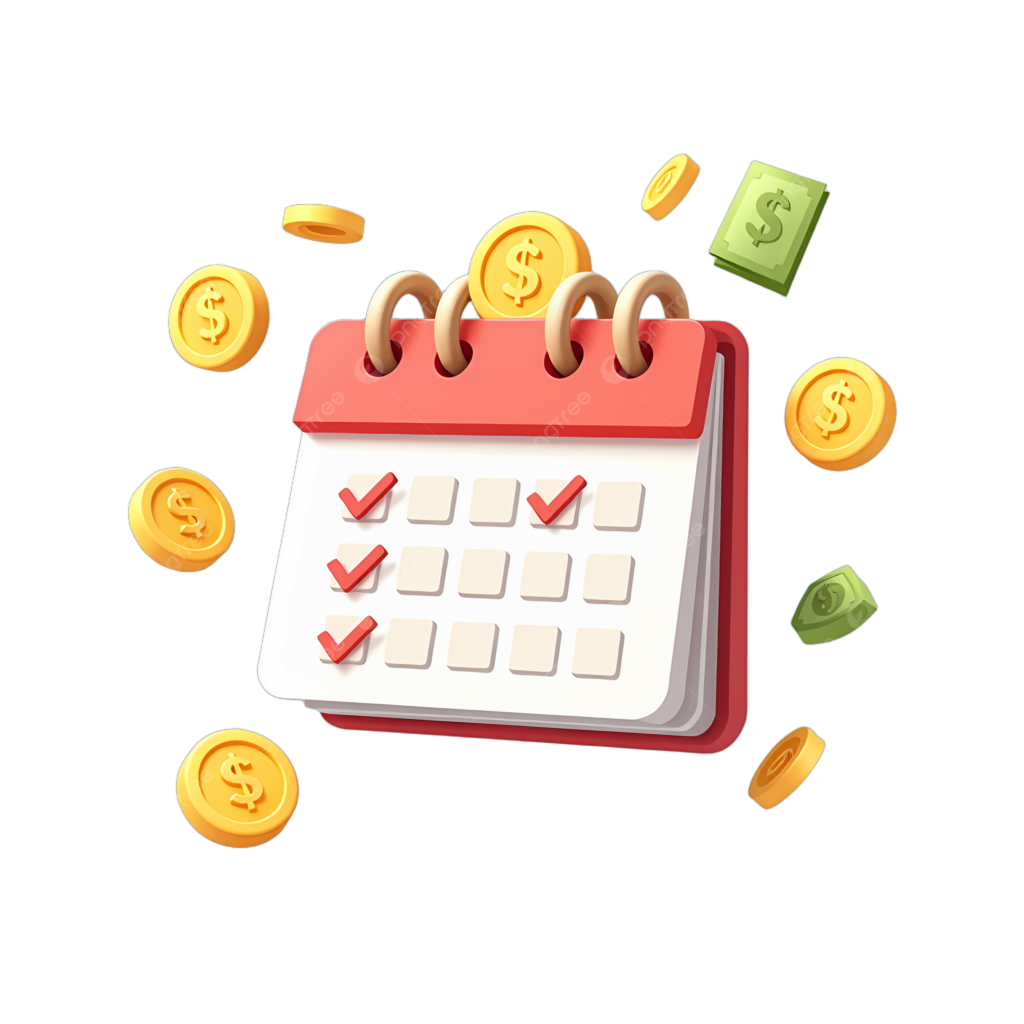Daily Expenses A Complete Guide to Wise Spending

Daily Expenses: A Complete Guide to Wise Spending

Introduction
Daily expenses is the backbone of personal finance. You could be a student, a working professional, an entrepreneur, or a homemaker. Regardless, how you organize your daily expenditures is directly responsible for your financial well-being and long-term aspirations. This all-encompassing guide is created to make readers aware, monitor, cut, and maximize their daily spending with intelligent financial practices, practical tools, and behavioral knowledge.
Understanding Daily Expenses
What Are Daily Expenses?
Daily expenses are the regular expenses that individuals incur as a part of day-to-day life. They may be food, transport, bills, mobile recharges, personal care, and other small but recurring expenses that together form a major chunk of monthly expenditure. They pass unnoticed because of their share but pay a heavy price over a period of time.

Types of Daily Expenses
1. Fixed Daily Expenses – They do not change, i.e., transportation or a daily coffee.
2. Variable Daily Expenses – These may change, such as eating out, snacking, and impulse buying.
3. Discretionary Expenses – Optional but regular, such as leisure pursuits or hobbies.
4. Unexpected Expenses – These are not daily but occurring frequently enough, i.e., doctor’s visits or home maintenance.
Importance of Maintaining a Record of Daily Expenses
• Assists in budgeting and savings
• Avoids wastage in spending
• Reveals money leakages
• Facilitates mindful spending • Introduces money discipline
Monitoring your expenses on a day-to-day basis gives you an insight into your spending pattern and enables you to initiate remedial measures. It can be the beginning of achieving sizeable financial goals such as buying a house, going overseas, or setting up a retirement corpus.
The Psychology of Spending
Understanding why we are spending is just as important as understanding how we are spending. Psychological factors such as stress, peer pressure, advertising, and habit have a tendency to affect spending habits.
Shared Psychological Triggers:
• Emotional Spending: Spending for emotional improvement or self-reward
• Social Influence: Following trends and peers
• Convenience Factor: Favoring convenience over cost-effectiveness
• Fear of Missing Out (FOMO): Spending due to trends or urgency cues
Behavioral Techniques to Control Every Day Expenses
• Delayed gratification: Waiting before spending
• Budgeting difficulties: Gamify your saving objectives
• Expense journaling: Record every purchase
• Mindful spending strategies: Stop and think before spending
• Use cash over cards: Literally handing over money makes you more aware
How to Track Daily Expenses
The first step to control is tracking expenses. Here’s how to do it.

Manual Tracking Methods
• Pen and paper journaling
• Expense diaries
• Bullet journaling using color codes
Digital Tools and Apps
1. Wallet – Simple to use and category-based budgeting
2. Money Manager – Minimal interface and charts
3. Goodbudget – Envelope system of budgeting
4. Spendee – Offers intuitive visuals for spending patterns and supports budgeting in various currencies for international use.
5. Monefy – One-tap entry for fast recording
Spreadsheet Templates
• Customizable Excel or Google Sheets
• Add columns for date, item, category, amount, and notes
• Utilize charts to see trends
Key Metrics to Track
• Total spend on a daily basis
• Spends by category
• Monthly averages
• Proportion of cash vs. card transactions
• Peak spending hours
Making a Daily Budget
A daily budget helps you avoid overspending and keep on the path towards your monthly and yearly financial objectives.
Steps to Make a Daily Budget
1.Determine your monthly income
2. Subtract fixed expenses (rent, EMI, bills)
3. Allocate a daily spending allowance based on residual income
4. Use the 50/30/20 rule:
- 50% on necessities
- 30% on discretionary spending
- 20% on saving and debt repayment
Budgeting Tools
• Mint: Bank syncing and real-time balances
• YNAB (You Need A Budget): Rule-based budgeting
• PocketGuard: Tells you how much you can afford to spend safely
• Zeta: Great for couples budgeting together
Daily Budgeting Success Tips
• Track each rupee
• Don’t use credit for daily expenses
• Keep emergency cash
• Review and adjust weekly
•Implement practical boundaries to avoid burnout
Reducing Daily Spending

Strategies for Cutting Costs
•Cook at home instead of ordering
•Use public transport or carpooling
•Buy in bulk and store optimally
•Use generic brands
•Use coupons and cashback
•Unsubscribe from unused memberships
•Switch to prepaid mobile/data plans
Regular Money-Discarders to Cut
•Regular food orders
•Impulsive buys
•Heavy use of ride-hailing
•Daily vices (e.g., coffee shop habits)
•Late charges on delayed bill payments
Low-Cost Alternatives
•Free entertainment (parks, community events)
•DIY home fixes
•Open-source software as opposed to paid apps
•Home cooking
•Walking or cycling short distances
Daily Budget for Various Lifestyles
Students
• Public transport, food, and technology through student offers
• Monitoring of hostel/PG expenses
• Spend-tracking less influenced by friends
• Utilize educational budgeting software
Working Professionals
• Meal planning to avert lunchtime expenditure
• Monthly pass for travel to office
• Coffee/snack expense tracking
• Bill payment automation
Homemakers
• Daily meal planning and weekly shopping at the grocery store
• Monitor utility expenses and hunt for efficiency
• Utilize energy-efficient appliances
Freelancers and Entrepreneurs
• Personal and Business expense segregation
• Flexible daily budget based on income flow
• Use accounting tools to track cash flow
Technology and Automation
Benefits of Automating Daily Expense Tracking
• Time-saving
• Reduces manual errors
• Provides insights and analysis
• Enforces budgeting discipline
Tools Suggested
• Tally for entrepreneurs
• QuickBooks for freelancers
• Moneyview and Walnut for Indian users
AI & Fintech Innovations
• AI-powered expense categorization
• Auto-suggest budgeting
• Automated overspending alerts
• Personalized financial advice using apps
Bending Over Backward to Get the Job Done
Overcoming Challenges in Expense Management
Common Challenges
• Spotty tracking
• Motivation lag
• Peer pressure
• Surprise emergencies that balloon the plan
• Older generation resistance to technology
Solutions
• Establish habits and routines
• Gamified apps like Habitica
• Online budget communities
• Reward small wins
• Emergency fund for surprise expense
Future of Daily Expense Management
Trends to Watch
• AI-powered financial planning
• Blockchain in personal finance
• Voice-controlled budgeting assistants
• Subscription consolidation tools

Preparing for Rising Cost of Living
• Modify elastic budgets
• Upskilling to increase income
• Periodically review expense plans
• Invest in financial literacy
Conclusion
Daily expenses are less about restriction and more about purposeful spending. With the right mindset, habits, and practical techniques, anyone can regain control over their financial journey. Start small, build consistent routines, and ensure every rupee aligns with your long-term aspirations. Whether you’re a student living on a limited budget or a working professional navigating the balance between convenience and cost, the SpendSmart approach empowers you to get value without waste.
For more insights on personal finance and smart budgeting strategies, visit Pacerline’s blog.






